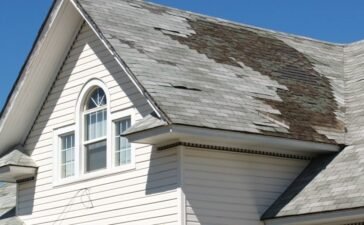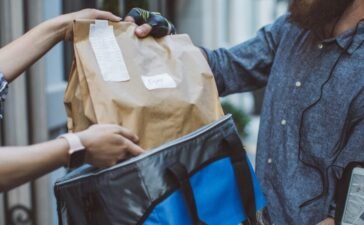When evaluating deals in the competitive world of house flipping, as showcased in my current project, featured in my Flip/Off battle with James Dainard (you can also read about his weekly progress), I consider several key factors to ensure both a strategic purchase and a profitable sale. These components are crucial to the success of the flip and are designed to resonate with a broad range of potential buyers, especially those entering the market for the first time.
But before I share my recipe for success, let me give you some background on my project.
The Flip/Off Project by the Numbers
We paid $93,000 for the house, which included the additional lot. Our target sale price is $280,000. We plan to spend $70,000 on the renovation, which includes a full cosmetic rehab and a new roof and septic system. We will have $16,800 in commissions, $13,000 in holding costs, and $10,000 in closing costs. So, if we stay on budget, that brings our potential net profit to $77,200.
We also have the option to sell the extra lot for between $8,000 and $15,000. If we do that, our net profit would jump to between $85,000 and $92,000. We overestimated our rehab budget on this project, so we hope not to spend the full $70,000. We will shoot for only spending $60,000 of this budget, which could add another $10,000 to our total net profit.
My Careful Considerations Before Making the Deal
These projections are possible because I always closely scrutinize any deal that comes my way. Like any smart investor, I’m out if the numbers don’t add up.
I consider dozens of factors with any project, but this property checked the five main boxes I always look for when evaluating a house flip deal. Here’s a look at each.
1. Location
The Flip/Off House is located in beautiful Bella Vista, Arkansas. It’s a 3/2 single-family house in a subdivision full of newer-construction homes.
It is really the last house in the neighborhood needing a remodel, which makes it even more desirable. In addition, it’s the smallest home in the neighborhood, which will attract families who may not be able to afford to live in this community otherwise.
2. Size that appeals to first-time homebuyers
With three beds and two baths, my Flip/Off House is the perfect size for a first-time homebuyer, as most first-time buyers are looking for two to four beds and two to three bathrooms.
Most first-time homebuyers are looking for homes between 1,200 and 2,500 square feet. This house has 1,300.
3. Layout that appeals to first-time homebuyers
The house has a split floor plan, meaning the primary bedroom is on the opposite side of the house as the secondary bedrooms. Split floor plans are popular among small families because they offer some separation from children’s rooms and parents’ rooms, but still accessible because the rooms are all on the same floor.
My Flip/Off house also already has an open floor plan. This is important because I won’t have to incur any additional expenses to open up the kitchen, which can be costly because you never know what is lurking behind walls until you open them.
4. A cosmetic rehab
Cosmetic rehabs are a huge bonus to find in a good flip deal because they allow you to keep your rehab costs low. I define a cosmetic rehab as a house that needs just paint, floors, light fixtures, bathroom, and kitchen refreshes.
What is great about cosmetic rehabs is that you aren’t changing plumbing layouts or completely redesigning kitchens and bathrooms. You are simply just refreshing all the spaces within the house and keeping everything in its existing location. This also allows you to keep holding costs down because cosmetic rehabs don’t take as long to complete as a complete remodel.
My Flip/Off house is a mixture of a cosmetic rehab with some additional high-ticket items. The main house is mostly a cosmetic rehab. We won’t be changing the layout or completely redesigning any spaces.
However, one of the downsides to this interior rehab is that there is mold damage from a burst pipe in the laundry room. We will have to remediate the mold, which will require us to remove and replace a substantial amount of drywall in the affected areas. My Flip/Off house also needs a new roof, a $10,000 expense, as well as a new septic tank, a $6,000 expense.
The good news about these expenses is that we bought the house for such a good price that it won’t blow the budget to take on these expenses.
5. Inexpensive ways to add big value
When you are flipping a house, adding value without adding expense is a great way to put additional money in your pocket. Knowing what to look for when evaluating a house and where you can add big value will help you spot diamonds in the rough.
Suppose the house has interior rooms that currently aren’t heated and cooled, like a sunroom, finished garage, or even a laundry room. When a house with central heat and air has a room without an HVAC run to it, that square footage cannot be counted in the interior heated and cooled square feet of the house, and most houses are valued at a dollar amount per heated and cooled square feet. This means that if you can add HVAC or run off the existing HVAC system to that room, you can now count that square footage, which will allow you to sell for a higher value.
This could also mean looking for an unfinished basement. Unfinished basements are great ways to add additional square footage. Typically, you can just add insulation, drywall, flooring, and HVAC runs (if the HVAC is big enough to support the additional square footage). Depending on the size of the basement, this can add a little or a lot of interior square footage to a property and increase its value substantially.
Finally, you can look for houses that have additional lots or that are on a large enough lot to parcel off a section of that lot separately. This is a great way to make extra money when flipping. If you find a house on a large lot or one with an extra lot, you can sell that lot separately.
Your best buyer for an additional lot like this would be a builder or the buyer of the house you are flipping. Sometimes, people buying your flip may want to pay a little extra for you to sell them that lot so they can control what happens next door to them.
My Flip/Off house came with an additional buildable lot next door, which I bought essentially for free because I just included that cost into the purchase price of the house. This means I can sell the additional lot for $10,000 to $15,000, which would add to my bottom line.
My flip also has an unfinished basement, giving me the option to finish all or part of that space and add additional square footage to the house. But even if I don’t finish the basement, it makes the home more desirable to buyers because they could finish the space themselves later if they need or want to make their home bigger.
Final Thoughts
Savvy house flippers always look beyond the surface, focusing on strategic features that appeal to buyers and practical improvements that increase property value. My experience with the Flip/Off house reinforces the importance of these principles, ensuring the property is primed for market success, ultimately providing a substantial return on investment while also delivering a home that new owners will cherish.
Do you agree with my strategy in the Flip/Off battle? Let me know in the comments below!
Whose House Flip Can Pull In the Biggest Return?
A house flipping competition like never before! Henry and James detail two recent flips they’re working on and battle against each other to see who can score the highest return. Which property will win the Flip/Off?

Note By BiggerPockets: These are opinions written by the author and do not necessarily represent the opinions of BiggerPockets.









